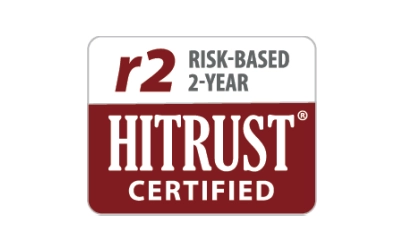In our digital world, information about any subject is just a few clicks or swipes away. It’s tempting for people to turn to “Dr. Google” to search for advice on health-related topics, especially when symptoms first appear or getting to a primary care physician for follow-up visits is difficult. But online information sources are no substitute for personalized, medically sound healthcare advice from a clinician.
That’s why many healthcare providers and health plans—from managed Medicaid to Medicare Advantage to employee-sponsored—are turning to enhanced telehealth services. These augmented patient engagement solutions can focus on both proactive outreach and traditional on-demand virtual care.
The goal is to provide convenient, consumer-centric access to high-quality care and information, any time day or night.
Proactive outreach via telehealth services for follow-up care, education and assessments
A number of patient engagement solutions leverage telehealth services to proactively contact consumers to help them manage chronic conditions, understand and follow post-discharge instructions and answer other health concern questions.
Outreach is ideally led by experienced registered nurses or care coordinators with clinical and telemedicine training. These professionals who have the knowledge needed to support patients in various points along their healthcare journeys, including:
- Post-discharge follow-up after inpatient hospital stays or emergency department (ED) visits — Discharged patients are often confused about how to comply with aftercare instructions and when to schedule appointments. Proactive follow-up helps patients adhere to treatment plans and reduce preventable readmissions.
- Medication adherence — Nearly two-thirds of Americans do not take their medications as prescribed, resulting in 125,000 premature deaths annually. Telehealth services can monitor the use of medications and help patients follow prescription directions.
- Patient-clinician video consults — For healthcare consumers who live in rural areas or have difficulty traveling for health or other transportation-related issues, talking with a clinician via a video call can be helpful to monitor and manage chronic conditions.
- Health risk assessments (HRAs) — Understanding large member populations and identifying high-risk individuals are critical for health insurers, employers, provider-sponsored health plans and risk-based healthcare organizations. During proactive and highly personalized HRA surveys, skilled patient engagement teams can take advantage of teachable moments, such as those related to lifestyle issues or condition management, and even support member needs in areas like medical transportation, meal delivery and other concerns related to social determinants of health.
- HEDIS® measures-related education and compliance — To gather Healthcare Effectiveness Data and Information Set, or HEDIS data, telehealth engagement solutions can be used to reach out to health plan members. Consistent, personalized contact increases member engagement, compliance and satisfaction by building rapport and a deeper, more trusting relationship between a plan and its members.
On-demand care to handle clinical concerns, 24/7
Of course, telemedicine services can also handle inbound questions from healthcare consumers and patients whenever they need it, whether that’s on a lunch break at the office, the soccer field or when a child wakes up with fever at 2 a.m. Registered nurses (RNs), telehealth-trained physicians, behavioral health specialists and other types of clinicians are available to assess symptoms, provide advice and determine appropriate next steps and next, evidence-based level of care.
If a telehealth service is integrated with a health plan’s or health system’s electronic health record (EHR) system, the patient’s relevant member data, such as their personal health information, medication records, health assessments and log of doctor visits and care, is available to the medical professionals handling the interaction.
Access to this information means callers can more quickly focus on the issue at hand. Virtual clinicians are empowered to deliver comprehensive, effective and safe care to each individual while creating a more personalized, efficient and satisfying member experience. Direction to the most appropriate setting of care can also improve satisfaction and reduce unnecessary emergency room, urgent care and even primary physician office visits.
Tap into stronger patient engagement solutions with telehealth-based care and outreach
Patient engagement solutions that incorporate telehealth services promote continuity of care and better long-term management of conditions while improving patient safety and outcomes. At Carenet Health, we’re dedicated to making on-demand virtual care more easily available, consumer-centric and affordable. And we’re always looking for ways to elevate our clients’ consumer experiences, including telehealth interactions.
Let’s brainstorm together to find custom solutions that will please your health plan members or patients and give you a distinct competitive advantage—and better care for your healthcare consumers.
HEDIS® is a registered trademark of the National Committee for Quality Assurance (NCQA).


